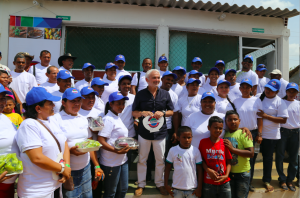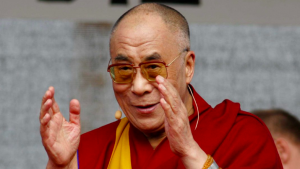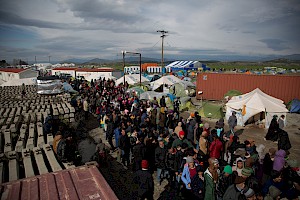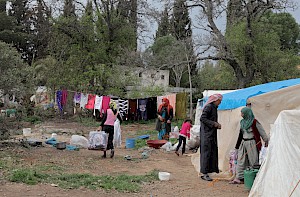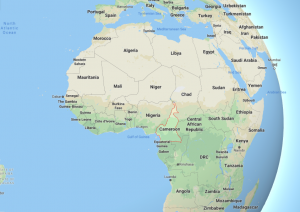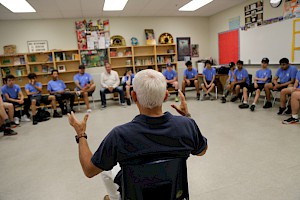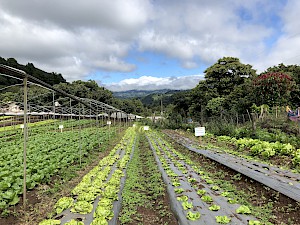How Yemen has benefitted from the work of International Crisis Group
May 01, 2019Dear reader,
If I were to ask you to tell me what you know about the Yemen conflict, I might expect a variety of answers. As a lay person, you might tell me that it’s some kind of civil war somewhere in the Middle East. Or that you heard something about a bus filled with school children that was accidentally bombed. Or some of you might not have heard anything at all. You are not entirely to blame for your lack of knowledge. The Yemen conflict doesn’t get a lot of coverage in the mainstream media. But what if I were to tell you that Yemen is the world’s worst humanitarian crisis – worse than Syria, or Afghanistan, or Libya, or Venezuela? What if I were to tell you that it was the most calamitous crisis that many have never heard about? 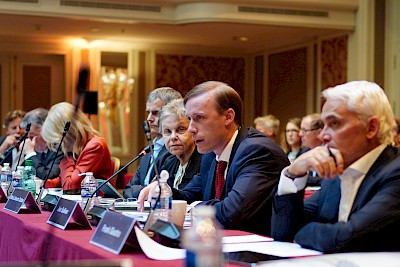
Here are a few statistics that should shock you. Out of a population of 30 million, 24 million Yemenis are in need of some humanitarian assistance. Sixty percent live in extreme poverty. Ten million don’t get enough to eat on a daily basis and almost one quarter million are starving. The most heartbreaking numbers involve children. Eighty-five thousand have died from extreme hunger and approximately 360,000 children under 5 years old are suffering from severe acute malnutrition. Half of the child population is undernourished. One child dies because of conflict every twelve minutes.
70,000 dead due to conflict
Official statistics tell us that since 2016, 70,000 people have lost their lives due to the conflict, including 18,000 civilians. Many have died through the indiscriminate bombing campaigns being conducted by the Saudi-led coalition. More recent studies suggest much higher numbers: that between 2015 and the end of 2019, some 230, 000 people will have died either directly as a result of the war or because of lack of access to food and infrastructure. There have been atrocities committed by both sides of the conflict and a peace agreement is nowhere in sight.
The nature of the conflict is too complex to describe in this article. Even seasoned policy makers have trouble grasping all the underlying factors and the ever-shifting agendas driving the various local, regional and global actors who have a stake in this conflict. 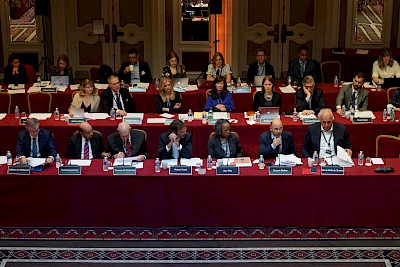 It would be easy to throw one’s hands in the air and declare this an unsolvable unholy mess. But given the catastrophic level of human suffering, that’s simply not an option.
It would be easy to throw one’s hands in the air and declare this an unsolvable unholy mess. But given the catastrophic level of human suffering, that’s simply not an option.
I just spent three days at the semi-annual trustee meeting of The International Crisis Group (ICG) in Paris. I have been on the board of ICG for 14 years and have always regarded the organization as the most important cause in all my philanthropic endeavours. The organization’s primary mandate is to prevent, resolve and mitigate the human impact of deadly conflict around the globe, and in my opinion, it’s the best in its class. It’s my view that securing peace – that is, addressing the root causes of conflict – is the prerequisite for addressing any other social need that may exist, whether it be health, education, poverty alleviation, etc. It is also by far the most cost-effective way of alleviating suffering, far cheaper than sending in military forces.
Unbiased research
During these meetings, we discuss the world’s conflicts and brewing hot spots. We have a seasoned board made up of former heads of state, foreign ministers, policy makers, military officers, journalists, academics and important business people from every region on earth. It’s a mini UN, independent from any political masters. Our country analysts are on the ground in all regions of conflict and we try to talk to all sides. The result is unbiased research – free of spin or any hidden agenda – and impartial, hard-headed advice that policy makers can trust and rely on to make important decisions. Don’t take my word for it – just ask those decision-makers around the globe. They might not always agree with what we say. But they always respect it and take it into account.
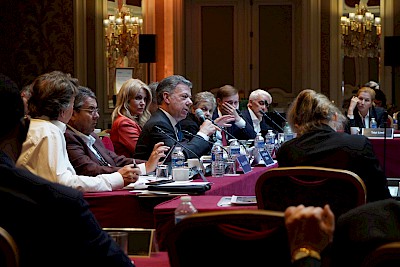 At our recent meeting, Yemen featured prominently as our top priority. That’s not to say we didn’t also discuss some other dangerous situations that need immediate attention, including Venezuela, the western Sahel in Africa, the growing risks of war between the United States and Iran, among many others.
At our recent meeting, Yemen featured prominently as our top priority. That’s not to say we didn’t also discuss some other dangerous situations that need immediate attention, including Venezuela, the western Sahel in Africa, the growing risks of war between the United States and Iran, among many others.
Yemen has been high on our radar for a few years and we were one of the first to ring the alarm bells on the planned attack by the Saudi-led coalition on the port city of Hodeida that is held by the Huthi rebels. This port is the entry point for most supplies entering the country, including aid and food. Had the attack taken place, it would have created an unimaginable humanitarian catastrophe, with millions threatened by starvation. This is where ICG demonstrated what it does best.
ICG saving lives
Our approach comes in three parts. The first part was the aforementioned research we produce, which policy makers rely on. The second part is our ability to get the message out through media interviews, op-eds, a documentary, and social media. We helped shape public discourse, which in turn put pressure on policy makers to act. Lastly, we conduct targeted high-level advocacy with all the stakeholders in this conflict, regardless of what side they are on. This included the UN, Saudi Arabia, the UAE, Iran, the US, and of course the Yemeni parties in conflict. In so doing, we helped shape the Stockholm agreement that, so far, has helped avert the attack on Hodeida. 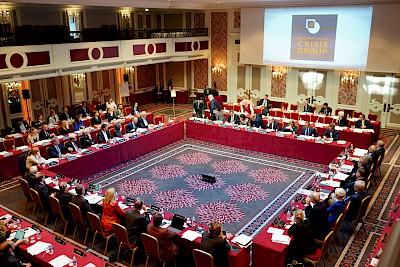
Of course, this agreement is but a first step in what is likely to be a long and arduous peace process that inevitably will have many setbacks. But it has saved many lives, perhaps hundreds of thousands of them. This was not the first time I have witnessed the crucial role ICG has played in preventing and ending conflict. Our dedicated board and staff are true heroes.
And that’s why Crisis Group is such an important organization that deserves not only my support, but yours too.



